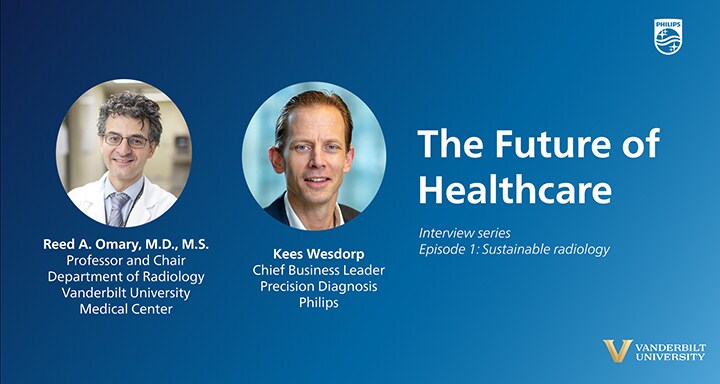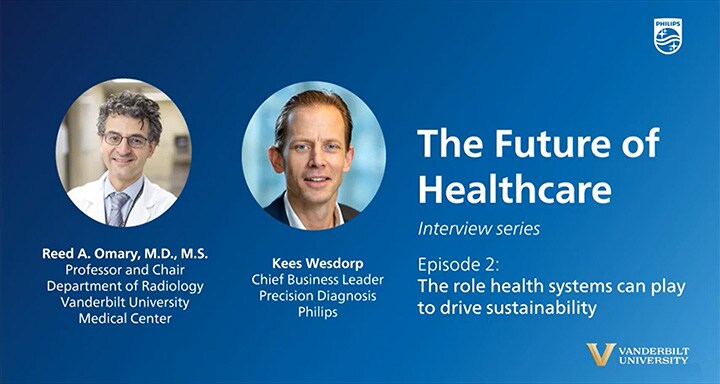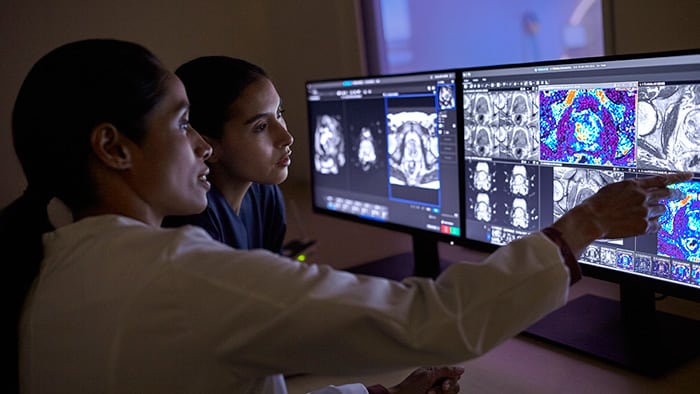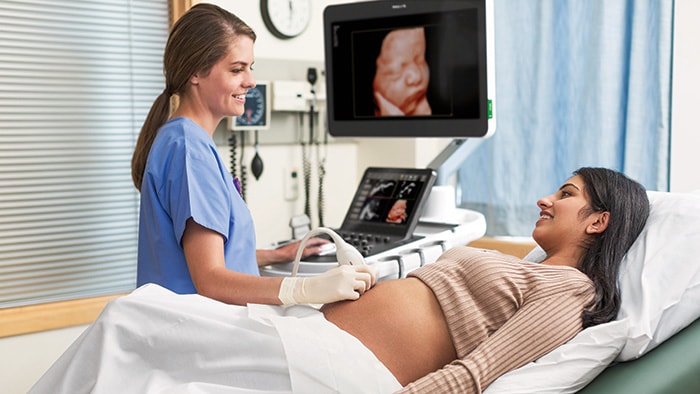As a purpose-driven health technology company, Philips prioritizes the responsibility to embed sustainability deeply in the way we do business – in our own operations and beyond, together with our partners.
According to the most recent Future Health Index global report, in 2021 only 4% of healthcare leaders worldwide were prioritizing environmental sustainability. Today, this figure has jumped to 24%, a nearly seven-fold increase year-over-year.
Today’s healthcare leaders understand that health technology companies, health systems, and other key industry stakeholders have a responsibility to act to invoke broader change. In addition to the responsible and sustainable use of energy and materials, its crucial to further optimize care pathways to help reduce the environmental impact of treatment.
Innovations in healthcare driving access to equal care go hand in hand with the sustainability objectives that we have. The question is: how do we accelerate?
Kees Wesdorp
Chief Business Leader, Philips Precision Diagnosis
Health technology companies cannot make the necessary changes in isolation. We need to work with care providers, practitioners, knowledge partners, and suppliers.
Listen in on the first two of a six-part conversation between Kees Wesdorp, Chief Business Leader, Philips Precision Diagnosis and Dr. Reed Omary, Chair of Radiology at Vanderbilt University Medical Center about how innovation, quality care, and sustainability go hand-in-hand to help create a healthier future. And stay tuned for the rest of the series to be shared in the weeks to come.
While reducing the environmental footprint of healthcare technology is imperative, it is also vital to improve the care system by investing in prevention, first-time-right diagnosis, minimally invasive therapies, and aftercare to help improve outcomes for the patient and the environment. Together, we can make strides toward a more sustainable healthcare industry of tomorrow.
One of the lessons we’ve learned from COVID is that the greatest challenges we face, the crises that we face together, are an opportunity for us to change the status quo.
Dr. Reed Omary
Chair of Radiology, Vanderbilt University Medical Center

















